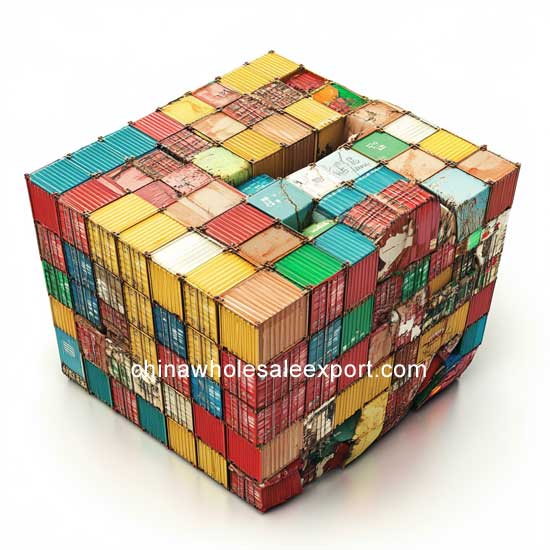Navigating the Chinese Wholesale Market: A Guide to Reputable Platforms
When looking to source products in bulk, Chinese wholesale sites have become the go-to destinations for businesses worldwide. These platforms offer an extensive range of products, from electronics to fashion and industrial goods, often at highly competitive prices. Whether you’re a small business owner or a large-scale importer, finding reliable Chinese wholesale sites can make a significant difference in profit margins and product quality. In this article, we explore some of the top Chinese wholesale platforms, discussing their pros and cons to help you make informed decisions for your business needs.
On Which Chinese Sites Can You Safely Buy Goods Wholesale?
When it comes to purchasing goods in bulk, China is one of the top destinations for wholesalers around the globe. Chinese wholesale websites offer a wide range of products at competitive prices, but it’s essential to choose reliable platforms. Below is a guide to 17 Chinese wholesale websites, outlining the pros and cons of each.

Best Chinese Wholesale Sites
1. Alibaba
Alibaba is one of the largest B2B marketplaces, connecting buyers and sellers across the globe. It offers an extensive range of products from clothing to electronics.
Pros:
- Massive product variety.
- Multiple suppliers for each product.
- Supplier verification system for safety.
- Secure payment options.
Cons:
- Minimum order quantity (MOQ) requirements can be high.
- Language barriers can sometimes lead to miscommunication.
- Shipping costs may be high for smaller orders.
2. Made-in-China
Made-in-China is another major B2B marketplace, offering products across numerous categories with a focus on manufacturing goods.
Pros:
- Direct access to manufacturers, offering lower prices.
- Verified suppliers.
- Product customization available.
Cons:
- Some suppliers may impose large MOQs.
- It may take time to navigate through non-verified suppliers.
- Shipping costs and times can vary greatly depending on the supplier.
3. DHgate
DHgate is popular for both B2B and B2C transactions, making it suitable for smaller wholesale purchases as well as bulk orders.
Pros:
- No need for very large orders; you can buy in smaller quantities.
- Buyer protection programs.
- Multiple payment options, including PayPal.
Cons:
- Customer service may be slow to respond.
- Delivery can sometimes be delayed.
- Product quality may vary significantly between sellers.
4. 1688.com
1688 is a Chinese domestic platform under the Alibaba Group, offering products at lower prices compared to Alibaba.
Pros:
- Lower prices than Alibaba.
- Huge selection of suppliers.
- Suitable for buyers looking for bulk at very low prices.
Cons:
- The website is primarily in Chinese, requiring translation tools.
- Only supports domestic payment methods (Alipay, etc.).
- No international shipping, so third-party freight forwarders are necessary.
5. Global Sources
Global Sources is a B2B marketplace primarily serving large-scale buyers, including retailers and importers.
Pros:
- High-quality supplier verification system.
- Wide variety of products and services.
- Offers trade show connections.
Cons:
- Primarily for large orders.
- Higher product prices than on Alibaba.
- Requires extensive negotiation with suppliers for best prices.
6. Taobao
Though known as a retail marketplace, Taobao can also be used for wholesale purchases through bulk orders.
Pros:
- Competitive prices.
- A vast selection of products.
- Strong buyer protection system.
Cons:
- Mostly in Chinese, requiring the use of translation services.
- Payment and shipping methods can be complex for international buyers.
- Low-quality products from some sellers.
7. AliExpress
AliExpress, also under Alibaba, caters to both retail and wholesale buyers, making it ideal for smaller bulk orders.
Blog about AliExpress – news, sales, current promotions
Pros:
- Low MOQs, suitable for small businesses.
- Buyer protection and secure payment options.
- Worldwide shipping.
Cons:
- Longer shipping times.
- Product quality can vary.
- Higher prices compared to Alibaba for bulk buying.
8. Yiwu Go
Yiwu Go specializes in products from Yiwu, one of China’s largest wholesale markets.
Pros:
- Low MOQs for certain products.
- Access to Yiwu market products without visiting China.
- Good for small businesses.
Cons:
- Not as extensive as other platforms like Alibaba.
- Language barriers can arise, as the platform is mainly in Chinese.
- Limited international shipping options.
9. LightInTheBox
While primarily known for retail, LightInTheBox also offers wholesale options for certain products, particularly in the fashion and electronics sectors.
Pros:
- Attractive pricing for bulk orders.
- Secure payment options.
- Free or low-cost international shipping.
Cons:
- Limited product categories.
- Longer delivery times for bulk orders.
- Product quality may not always meet expectations.
10. Tmart
Tmart is a global e-commerce site offering wholesale deals primarily in electronics, gadgets, and home appliances.
Pros:
- Competitive pricing for tech products.
- International shipping.
- Easy navigation with multilingual options.
Cons:
- Limited categories outside of electronics.
- Lower brand recognition compared to other platforms.
- Quality may vary across sellers.
11. Chinabrands
Chinabrands focuses on dropshipping but also provides wholesale services for various product categories.
Pros:
- Global shipping and logistics network.
- No minimum order quantity on some items.
- Integration with dropshipping systems.
Cons:
- Higher prices compared to domestic wholesale platforms.
- Some sellers have inconsistent shipping times.
- Limited supplier verification process.
12. Banggood
Banggood is another B2C and B2B platform, offering a wide range of products from electronics to household items.
Pros:
- Competitive pricing and deals.
- Fast global shipping options.
- Wholesale discounts for bulk purchases.
Cons:
- Product quality can be hit or miss.
- Limited supplier communication.
- Some products may have longer shipping times.
Each Chinese wholesale platform has its own strengths and weaknesses, so it’s important to choose the one that best aligns with your business needs. Alibaba and Made-in-China are great for those looking for direct manufacturer access, while platforms like AliExpress and DHgate are ideal for smaller orders. Be sure to vet suppliers thoroughly and factor in shipping costs and delivery times to ensure a smooth purchasing experience.
13. HKTDC (Hong Kong Trade Development Council)
HKTDC offers a range of products, connecting international buyers with Hong Kong-based suppliers, many of whom source from mainland China.
Pros:
- High-quality products and suppliers.
- Organized trade shows for direct networking.
- English-language platform for easier communication.
Cons:
- Higher pricing compared to other wholesale platforms.
- Smaller selection of suppliers.
- Limited product variety compared to mainland China-based platforms.
14. Tootoo
Tootoo specializes in raw materials and bulk industrial products, making it ideal for businesses in manufacturing and industrial sectors.
Pros:
- Access to niche markets like chemicals, machinery, and industrial tools.
- Verified suppliers.
- Products often come at factory prices.
Cons:
- Narrow product categories focused on raw materials.
- Large MOQs.
- Shipping and logistics for heavy industrial goods can be costly.
15. TradeKey
TradeKey is a global B2B marketplace that features a large number of Chinese suppliers, offering a wide variety of goods, from clothing to industrial machinery.
Pros:
- Global reach with verified suppliers.
- Easy-to-use platform with multiple categories.
- Trade shows and virtual events for networking.
Cons:
- High competition among buyers can make negotiation difficult.
- MOQs can be high, depending on the supplier.
- Product prices may vary significantly depending on the seller.
16. Pinduoduo
Pinduoduo is one of China’s largest online platforms, primarily catering to domestic users but increasingly gaining international traction for its group-buying and wholesale model.
Pros:
- Group-buying features lead to lower prices.
- Large selection of consumer products.
- Excellent for low-cost goods and fast-moving items.
Cons:
- Primarily a Chinese-language platform.
- Requires third-party shipping services for international orders.
- Limited variety for specific product categories like electronics and industrial goods.
17. China.cn
China.cn is a comprehensive B2B platform offering a wide range of goods, from electronics to clothing and consumer goods.
Pros:
- Verified supplier network.
- Large catalog of products.
- Easy-to-use platform for foreign buyers.
Cons:
- Language barriers can arise, as many suppliers primarily speak Chinese.
- Less popular than larger platforms like Alibaba.
- May require negotiation on shipping methods for international orders.
These additional platforms further expand your options for sourcing wholesale goods from China. Depending on your product niche, certain platforms may be more suitable. For instance, if you’re looking for industrial goods, Tootoo and TradeKey might be ideal, while platforms like Pinduoduo and China.cn offer a broad range of consumer products at competitive prices. Always evaluate suppliers carefully and ensure you understand their terms before placing bulk orders.
China Wholesale Suppliers: Unlocking Global Trade Opportunities


Leave a Reply